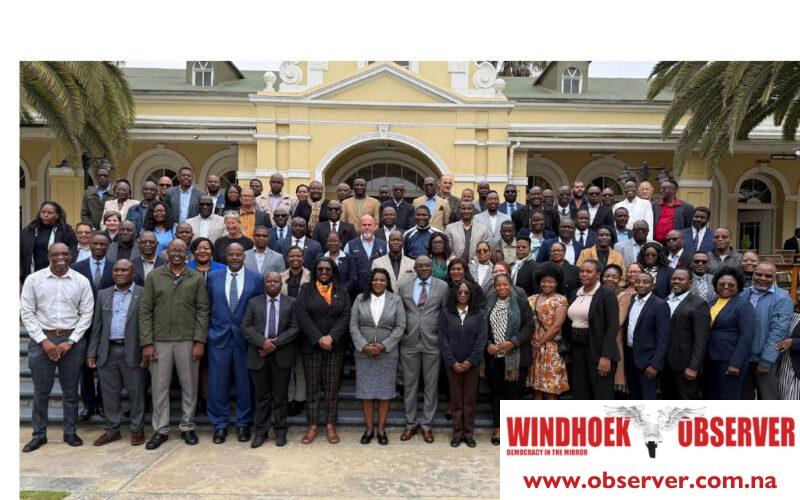Niël Terblanché
Deputy Minister of Agriculture, Fisheries, Water and Land Reform, Ruth Masake, has called on senior officials within the ministry to focus on tangible results as the new five-year strategic planning cycle begins.
Masake delivered the message during a high-level strategic and annual planning workshop held in Swakopmund on Tuesday.
“Our nation looks to us not just for plans, but for results. The time for excuses and delays is long gone. I call on every single management official here today to commit to excellence, accountability, and responsiveness,” she urged.
The workshop was convened to shape the ministry’s strategic plan for 2025–2030 and the annual work plan for the 2025/26 financial year.
Masake stressed the importance of aligning these plans with the sixth National Development Plan (NDP6), the SWAPO Party Manifesto, Vision 2030, Agenda 2063, and the Sustainable Development Goals.
She reiterated the weight of responsibility resting on the ministry, which oversees the key sectors of agriculture, water, fisheries, and land reform.
“We are the custodians of four essential sectoral pillars. Each is interwoven with the livelihoods, dignity, and prosperity of our people. The deliverables assigned to this Ministry by Her Excellency the President are ambitious, but they are also achievable, provided we match vision with discipline, and planning with execution,” she said.
Key focus areas for the planning cycle include agricultural productivity, food security, operationalising green schemes, building agro-industrial value chains, promoting climate resilience, advancing equitable land reform, managing marine resources, and expanding water infrastructure.
Specific projects mentioned include a second desalination plant in Erongo and improved use of the Ohangwena Aquifer and Neckartal Dam.
Masake made it clear that public enterprises, advisory bodies, and agencies under the ministry’s umbrella must align their plans and budgets with the Ministry’s strategic goals.
“It is imperative that these institutions do not operate in silos or pursue fragmented agendas. Their efforts must form part of a cohesive, well-coordinated national push toward sustainable development and inclusive growth,” she urged.
She also tasked the Directorate of Planning and Business Development with a central coordinating role, including advising the minister on the allocation of fishing quotas.
She cautioned against inefficiencies and duplications in planning, stressing the need for prudent use of resources.
Turning to the matter of integrity, Masake delivered a firm warning against corruption, calling it a practice that undermines justice, destroys public trust, and steals opportunity from those who need it most.
“As senior management, you must lead by example. Uphold the principles of fairness, transparency, and justice, in line with Article 18 of the Namibian Constitution,” she said.
Masake also urged officials to create a culture of collaboration between the various directorates and other government organs, accountability, and humility
She reminded officials that the success of one directorate should be viewed as the success of all.
“We must break the silos. We must consult and coordinate,” she said. “Let your plans reflect the urgency of the times, the needs of the people, and the vision of the future we are building,” she said.
Masake reaffirmed her confidence in the leadership of the officials who are participating in the workshop and called on them to work with courage, clarity, and commitment, and to serve all Namibians with honour and humility.
“Let us deliver,” she said.




